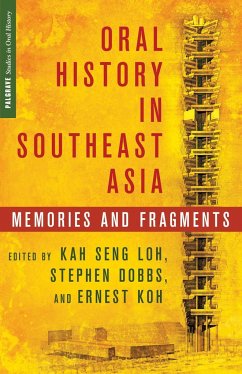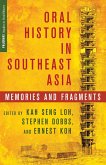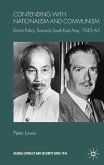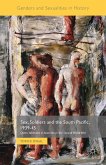Using the presence of the past as a point of departure, this books explores three critical themes in Southeast Asian oral history: the relationship between oral history and official histories produced by nation-states; the nature of memories of violence; and intersections between oral history, oral tradition, and heritage discourses.
'A pioneering attempt - the first I know of - to systematically explore the knowledge only available through oral accounts as opposed to written texts, official history, and newspapers. A brilliant and original invitation to re-imagine the craft of history itself and to re-tell the history of Southeast Asia as it is spoken and remembered by those who lived it.' - James C. Scott, Sterling Professor of Political Science and Anthropology, Yale University, USA 'Southeast Asian regimes better think twice before becoming too comfortably smug in their belief that their citizens have been successfully (re)molded into docile subjects. As this wonderful collection of 'stories from below' indicate, individuals, families and communities from all over the region express opinions different from if not critical of official narratives. These are tales that have been ingeniously preserved and protected from repeated attempts by the state to make people forget about them.' - Patricio N. Abinales, University of Hawaii-Manoa, USA
"The volume demonstrates the rich variety of oral history work taking place across Southeast Asia by historians, social scientists, local academics, activists and foreign researchers. ... As a collection, these contributions highlight the diversity of oral history work being undertaken in the region and provide much-needed insights into the peculiarities of oral history in Southeast Asia." (Nicole Lamb, Asian Studies Review, Vol. 40 (2), June, 2016)
'A pioneering attempt - the first I know of - to systematically explore the knowledge only available through oral accounts as opposed to written texts, official history, and newspapers. A brilliant and original invitation to re-imagine the craft of history itself and to re-tell the history of Southeast Asia as it is spoken and remembered by those who lived it.' - James C. Scott, Sterling Professor of Political Science and Anthropology, Yale University, USA
'Southeast Asian regimes better think twice before becomingtoo comfortably smug in their belief that their citizens have been successfully (re)molded into docile subjects. As this wonderful collection of 'stories from below' indicate, individuals, families and communities from all over the region express opinions different from if not critical of official narratives. These are tales that have been ingeniously preserved and protected from repeated attempts by the state to make people forget about them.' - Patricio N. Abinales, University of Hawaii-Manoa, USA
'A pioneering attempt - the first I know of - to systematically explore the knowledge only available through oral accounts as opposed to written texts, official history, and newspapers. A brilliant and original invitation to re-imagine the craft of history itself and to re-tell the history of Southeast Asia as it is spoken and remembered by those who lived it.' - James C. Scott, Sterling Professor of Political Science and Anthropology, Yale University, USA
'Southeast Asian regimes better think twice before becomingtoo comfortably smug in their belief that their citizens have been successfully (re)molded into docile subjects. As this wonderful collection of 'stories from below' indicate, individuals, families and communities from all over the region express opinions different from if not critical of official narratives. These are tales that have been ingeniously preserved and protected from repeated attempts by the state to make people forget about them.' - Patricio N. Abinales, University of Hawaii-Manoa, USA








